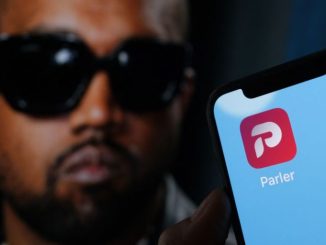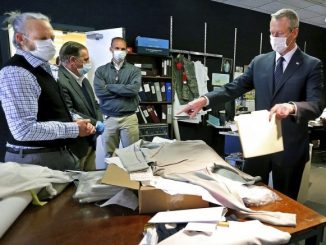

FILE – In this Dec. 25, 2020 file photo, released by Xinhua News Agency, a staff member inspects syringes of COVID-19 inactivated vaccine products at a packaging plant of the Beijing Biological Products Institute Co., Ltd, a unit of state-owned Sinopharm in Beijing. (Zhang Yuwei/Xinhua via AP, File)
OAN Newsroom
UPDATED 8:50 AM PT – Thursday, December 31, 2020
China’s ruling Communist Party took extensive steps in the early days of the coronavirus outbreak to control the narrative surrounding the virus and fight public opinion.
This comes amid reports by Pro-Publica and the New York Times, which detail documents leaked by a hacker group that calls itself “CCP Unmasked.”
These documents show thousands of directives and memos reportedly from the country’s internet regulator, the Cyberspace Administration of China, working to make the virus appear less threatening and authorities seem as if they were competently handling the situation
This included using specialized software, which allowed the government to track online trends, coordinate censorship activity and manage fake social media accounts. These directives date back as far as early January. This also included ordering news sites to use only government-published reports and not to compare the virus with the SARS outbreak of 2002.
At the beginning of February, Chinese President Xi Xinping himself called for tighter control of digital media with a directive stating regulators should work to “influence international opinion.”
Much of this came to a head on February 7, 2020 with the death of coronavirus whistleblower Dr. Li Wenliang who had warned of a new viral outbreak before succumbing to the virus himself.
Authorities began an immediate crackdown by warning expressions of grief would be allowed, but anyone “sensationalizing” the story would be dealt with “severely.” Following Li’s death, online memorials vanished and police detained people working to archive deleted posts.
By late May, authorities were alerted to confidential opinion analysis reports being published online and ordered cyber administration offices to get rid of internal reports.
Researchers said hundreds of thousands of people work part-time in China to help shape the country’s online narrative, including low level government employees as well as university students and teachers.
This is not the first report to show China’s effort to censor its own people. Reports dating back to early 2020 show the Chinese messenger app WeChat, owned by Tencent Holdings, blocked keyword combinations that criticized President Xi, local officials and policies linked to the outbreak.
The U.S. and other nations have long accused China of suppressing information about the coronavirus that could have potentially changed the tide of the outbreak.





Be the first to comment